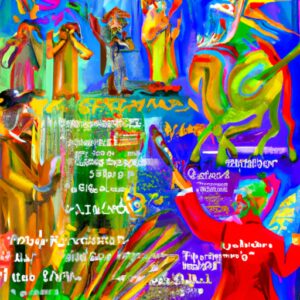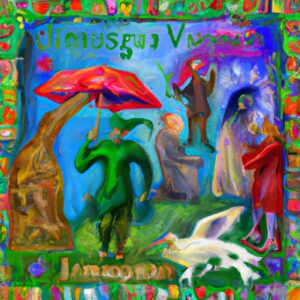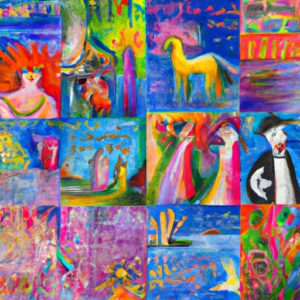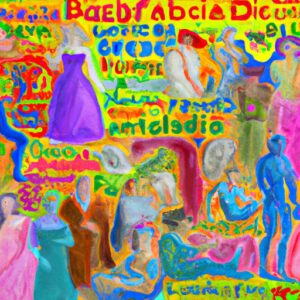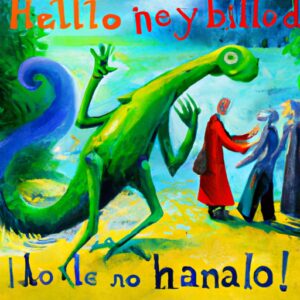Italian vocabulary
- 06/16/2023
Discover the language of love with “A Beginner’s Guide to Italian Vocabulary for Dating.” Dive into Italian phrases and ignite your passion! Basic Italian Phrases for Dating When it comes...
- 06/16/2023
Unlock the beauty of Italian architecture with our essential vocabulary guide. Master the words and phrases that bring these stunning structures to life! Italy is renowned for its architecture, a...
- 06/10/2023
Discover the essential Italian gardening vocabulary for plant enthusiasts! Expand your green thumb with these 10 must-know words. A blog for gardening enthusiasts. If you’re a green thumb looking to...
- 06/03/2023
Learn essential Italian vocabulary for food with our guide. From appetizers to main courses and desserts, impress your dining companions today! As a lover of Italian cuisine, I know firsthand...
- 06/03/2023
Explore the enchanting world of Italian words for everyday use as we uncover vocabulary that adds beauty to daily life. Immerse yourself in Italy’s passion, art, and cuisine, discovering essential...
- 05/28/2023
Master essential Italian vocabulary for emergencies with our concise guide, ensuring confident communication and preparedness in critical situations. Italian Vocabulary for Emergency Situations As much as we hope to never...
- 05/27/2023
Italian is a melodic language with fascinating intricacies. Among them are homophones, where similar-sounding words hold distinct meanings. Explore the captivating world of Italian homophones as we unveil their treasures...
- 05/24/2023
Expand your Italian medical vocabulary with our comprehensive blog, covering essential terms and phrases for healthcare professionals. Start learning today! Italian medical vocabulary: An overview When it comes to learning...
- 05/18/2023
If you are planning on doing business in Italy, learning some basic Italian phrases can go a long way in building trust and establishing strong business relationships. Whether you are...
- 05/11/2023
Discover the power of connecting through shared passions! In this article, we’ll equip you with the skills to confidently discuss your hobbies and interests in Italian, allowing you to forge...
- 05/07/2023
Get ready to be surprised by how much Italian has influenced the English language! From food to fashion, art to music, Italian loanwords are all around us. In this article,...
- 03/09/2022
Learn the Italian numbers It’s always tough to use numbers when learning a new language. They say that you can only truly master a foreign language if you can think...
- 12/03/2021
Learning the local slang is one of the best parts of traveling. It gives you a glimpse into the culture and personality of a place and allows you to connect...
- 08/30/2021
Italians are huge fans of acronyms, which makes reading Italian news and participating in discussions a little more difficult. To help you survive the alphabet soup, here are the top...
- 06/07/2020
How to say hello in Italian? Choose from 19 formal and informal Italian greetings for every occasion. There's more than just "ciao"!









